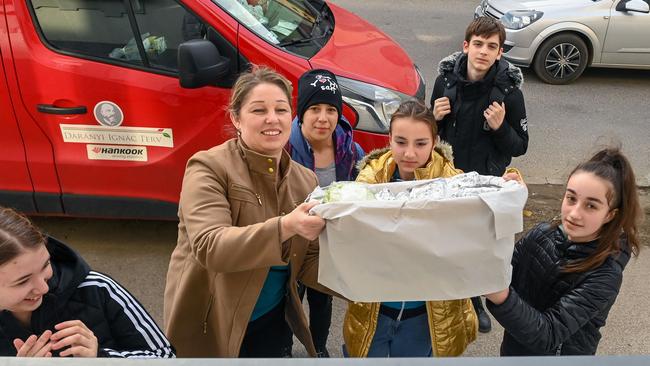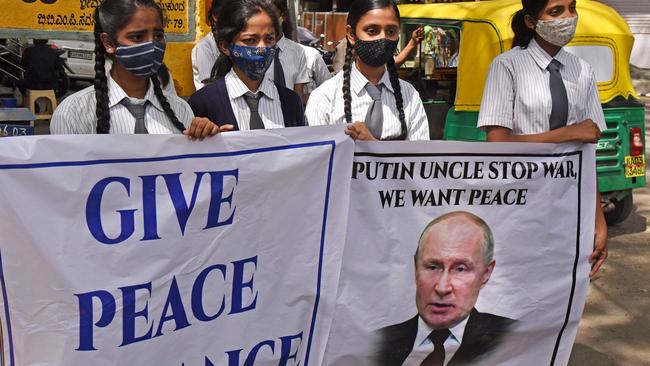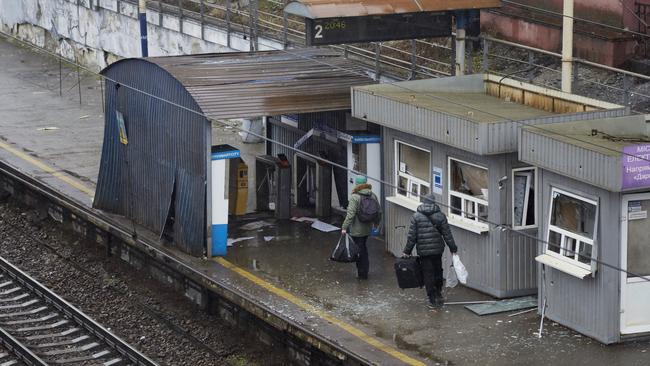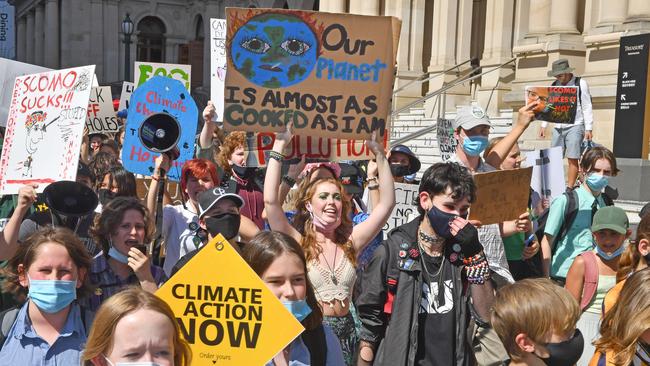Erin Molan: Would young Aussies fight for our country like in the Ukraine?
Young Australians are being taught to hate their country. It seems doubtful they’d be willing to defend it, writes Erin Molan.
Opinion
Don't miss out on the headlines from Opinion. Followed categories will be added to My News.
Would you be willing to pick up a gun and defend Australia? Would our youth? It’s a question most of us couldn’t answer with any real certainty until we were put to the test.
It is, however, the chilling reality for millions of Ukrainians right now, most of whom have never held a weapon but are being asked to stand up to one of the most brutal regimes in the modern world, the Russian Federation.
The youth of Ukraine have been gathering in the streets, taking up arms and professing their undying loyalty to their nation, willing to die to preserve and protect their independence, their freedom and their families.
Would ours do the same?

I look at some young adults in this country and, while I don’t always agree with their stance on particular causes they choose to embrace, I am often in awe of the force of their passion and commitment to fighting for their beliefs.
Whether it be climate change policies, gender issues or indigenous affairs, they gather, march, protest and post (on social media of course) with the kind of bravado and uncompromising resolve we might recognise in some of the Ukrainian youth inspiring us so fervently today.
So would the hundreds of thousands who marched around the country to protest global warming in the School Strike for Climate feel just as passionately about protecting Australia if we ever came under threat?

I’m not confident they would. I genuinely hope I’m wrong – and if I’m not, then how did we get here?
The focus of much of their lives, including time spent at school, seems to be on what is terrible about this country, how we have failed and all the ways in which we continue to do so.
I’m not saying our school syllabuses shouldn’t include all elements of our history – but the good needs to feature in there somewhere too because there’s plenty of it.
Our teachers are doing phenomenal work in and out of classrooms, working hours that make your eyes water, but in so many states and subject areas they are being controlled, many tell me, by an obligatory approach to the content they are teaching. And then we have universities. It took two years to get them to agree to a basic free speech code after a government inquiry into the state of debate on our campuses.
The pursuit of academic excellence is totally lost in the scramble for a cause. We, as a nation, are failing our young people. Many are taught, even encouraged, to dislike if not hate this country and this isn’t unique to the land down under.

Former American schoolteacher and journalist Robert Pondiscio recently wrote a brilliant piece titled The Unbearable Bleakness of American Schooling. He argues with great conviction that when education becomes activism the entire focus is on the negative, contributing to a miserable state of mind in most who are exposed to it.
“Curricula and school culture seem nearly to revel in the bad and the broken, suggesting to children that they have suffered a great misfortune to have been born into a country that is racist to its core, whose founding documents were lies when written and where democracy is hanging by a thread,” he said.
“Not that it matters, since we are just a few short years away from irreversible climate catastrophe, all but certain to render the world a spent and burnt-out husk by the time they are grown.’’
Pondiscio’s words resonate among many of us and challenge us to consider defining the degree of loyalty, patriotism and pride that can coexist alongside a suite of criticisms and loathing for one’s country in the mind of its youth.
He goes on to note: “If children view their country as mostly or entirely hostile to their wellbeing, they cannot help but get the sense there is nothing worth protecting and preserving … education’s highest objective is to nourish the soul and inspire human flourishing, not to be a hobbyhorse for either ambitious technocrats or social-justice warriors.’’
Read the above quote again … it’s powerful.

Unsurprisingly, those who have scrutinised the urge or willingness of a population to fight for its country note huge variations depending on geography and security – that is, how great is the risk of invasion?
This week’s Newspoll tells us about 60 per cent of 18-34-year-old Australians currently view China and Russia as posing a threat to Australia’s national security.
One would hope most are equally aware we face more significant security risks at present than we have for decades — the pandemic has magnified some of them calamitously for us — and there are also widespread strategic antagonisms and ideological conflicts that continue to niggle away.
Are there enough threats to propel the preservation of our democratic freedom, our Aussie way of life and our families and communities, to the very top of our younger generation’s priorities? To be willing to put their lives on the line, because without peace, democracy and independence, we are nowhere?
Or would we, if push came to shove, roll over?
It is many generations since young Aussies have had to ask themselves these questions.
We are the country we are today because so many of them said yes.
As one, we crave peace in our part of this alarming world and goodwill to all men and, as one, we crave exactly the same for our 40 million mates in Ukraine.





